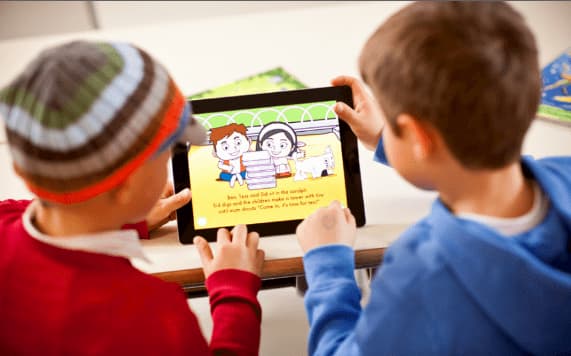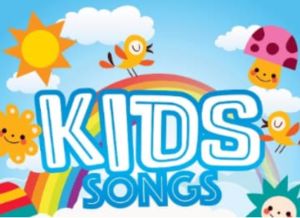PARENTS GUIDE (TIPS AND ADVICES FOR PARENTS)
In this page, you can see how to use our website to teach English to your children effectively.

HOW TO BENEFIT FROM OUR WEBSITE
In our website, we provide English teaching contents for young learners. All contents on this website are created considering the curriculum developed by experienced English teachers. So you should follow the curriculum in order to benefit from our website effectively and easily.
In our website, there are 15 basic topics that young children need to acquire. Every topic consists of seven sections including “Warm Up, Function Words, Songs, Videos Lecture, Digital Games, Worksheets, Evaluation”. Following the topics and sections step by step will help you teach your child more effectively.

- Warm up (5 min.): In this section, you can see some warm-up videos. Make your child watch them several times and repeat the phrases they listen.
- Function Words (10 min.): In this section, children learn new words related to topics through enjoyable activities. You can change the learning mode to get several different activities.
- Songs (15 min.) : Songs are good way for kids have fun while learning English. Especially action songs in which they are actively involved will help them learn new words easily and understand the sentences they sing. Every section has songs related to the topic. Make sure your child listen them several times. Try to sing along with them.
- Video Lecture (20 min.): After first three steps, your child is now ready to learn the topic. With these video lectures, your child will be able to acquire the intended functions easily. Make sure he/she watch them several times and try to practice with them.
- Digital Games (15 min.) Children will reinforce what they have learnt with the help of games related to topic. It allows them to experiment through trial and error, find solutions to problems, work out the best strategies, and build new confidence and skills.
- Worksheets: You can print out worksheets and have fun with your child doing exercises. The exercises enable learning to be permanent.
HOW TO ENCOURAGE AND MOTIVATE YOUR CHILD
It is very normal that some learners find it hard to speak English. Some may be a bit shy and they don’t want to make mistakes. But young learners are natural learners, in other words they aren’t so nervous or worried about learning English. If you teach them in natural ways like their mother tongue, they become easily motivated.
- Make learning fun and enjoyable. Try to incorporate an element of fun into activities. Children naturally like to play and love games for practising speaking and learning new vocabulary or grammar.
- Don’t pressure your child to give longer answers. Saying just one word is fine for them.
- Don’t interrupt or correct them immediately when your child is speaking. Remember ‘mistakes’ for later. If you stop to correct, it is hard to build up spoken fluency and can be bad for confidence.
- Create suitable environment for them to use vocabulary and phrases that they already know well.
- Use your first language to clarify if necessary.
- Keep speaking activities fun and not too long.
- Accept mistakes. The important thing is for your child to say English words without worrying.
GAMES ARE CRUCIAL

Play lets children practise what they know, and also what they don’t. It allows them to experiment through trial and error, find solutions to problems, work out the best strategies, and build new confidence and skills.
But doctors and educators believe that we should see play as serious learning. Through play, children develop thinking skills and abilities that help them to succeed in their future, including in language learning. The balance of enjoyment and challenge makes games such amazing tools for learning.
USE STORYBOOKS
Books are one of the most interesting and motivating materials that you can use in teaching English to your kids. Stories can make them feel excited, sad, happy, surprised. They can experience the events with tha characters. It’s a powerful and motivating way for children to learn language. Reading your child is also a great way to spend time with your child. In choosing the story boks, you should keep in mind that;
- the boks should contain illustrations. The story need to be supported by interesting pictures.
- the vocabulary and language should be clear.
- the amount of text in a page shouldn’t be too long.
- the story and characters should be related to child’s interest.

Stories help children to:
- learn vocabulary (especially when key words are repeated in the text and pictures)
- learn how words can be put together to make sentences and texts
- learn sounds, rhythm and intonation (especially where there are lots of rhyming sounds)
- use their imagination and thinking skills to ‘work out’ meaning and predict what happens next
- develop their understanding of the world, life experiences, relationships and feelings.
USE VIDEOS AND TV
Videos especially cartoons are great source of real-life English language.
They help children become familiar with different accents and
watch facial expressions, body language and gestures of the speaker. So that they can
develop their understanding of the world and ‘real’ situations outside the classroom.
Most of all, children love learning through videos/TV. It can be a great source of motivation – one of the most important factors in language learning.
TEACH THROUGH SONGS

Songs are good way for kids have fun while learning English. Especially action songs in which they are actively involved will help them learn new words easily and understand the sentences they sing. You should choose songs that are not too long and fast. The best songs to teach English must be clear and used in everyday English. Songs with lots of rhyming words and rhythms that repeat makes it easier for children to learn new words and start singing along.

